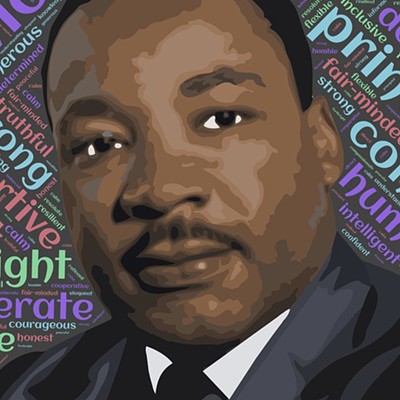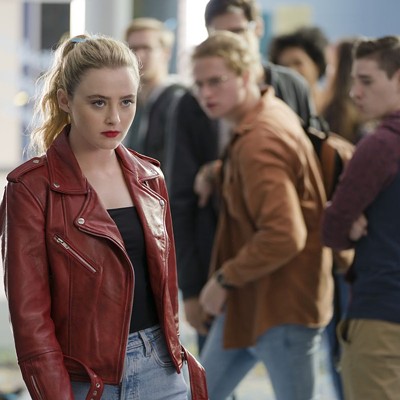THE LAST OF ROBIN HOOD
*1/2
DIRECTED BY Richard Glatzer & Wash Westmoreland
STARS Kevin Kline, Susan Sarandon
If ever an actor was born to play Golden Age screen star Errol Flynn, it would be Kevin Kline. The only real question, I suppose, is why it took this long.
In such efforts as A Fish Called Wanda (for which he won a Best Supporting Actor Oscar) and In & Out, Kline displayed an effortless physical dexterity, and he even swashbuckled his way through The Pirates of Penzance much as Flynn had done back in the 1930s, in such classics as The Sea Hawk, Captain Blood and The Adventures of Robin Hood.
In the new picture The Last of Robin Hood, Kline doesn't even have to break that much of a sweat, since he's playing Flynn at the end of the matinee idol's life, when hard living and hard drinking left him a former shell of his dashing self (Flynn died at the age of 50 while Kline is 66, but the former looked so much older that the 16-year age difference is immediately null and void).
Kline's participation in this enterprise is fortuitous for all concerned, because without him, this movie would be nothing.
The Last of Robin Hood focuses on the event that defined the final years (1958-1959) of Flynn's life: his relationship with Beverly Aadland (Dakota Fanning), an aspiring actress handled by her opportunistic mother Florence (Susan Sarandon).
Spotting Beverly across the studio lot, Flynn promises the virginal 18-year-old girl the moon and ends up seducing her late one night. But the seduction is really a rape -- and statutory rape as well, since Beverly was actually 15 and able to pass herself off as 18 thanks to a fake ID provided by mommie dearest.
As the real Beverly Aadland (who passed away four years ago) explained in a 1988 interview with People, "[Errol] knew so many women who would say yes that when I was saying no, no, no, he thought I meant yes. I know that because I asked him about it later."
Perhaps that's one of the reasons why, after initially giving him the cold shoulder, she finally agrees to see him again. Soon, they're inseparable, professing their love for one another while trying to make movies together.
Even learning Beverly's true age can't quench Flynn's fire; if anything, it inspires him to make comparisons to the relationship in that controversial classic of literature, Lolita.
The Last of Robin Hood even includes the famous tidbit (never definitively proved or disproved) about Flynn meeting with Stanley Kubrick (Max Casella) in an attempt to secure the leading roles for himself and Beverly in the screen adaptation of Nabokov's novel; instead, the couple end up co-starring in 1959's notorious Cuban Rebel Girls, in which Flynn's character, a war correspondent, helps Castro overthrow Batista (no, really). And all the while, Florence either nods approvingly or looks the other way, thinking about her own rising fortunes rather than the welfare of her underage daughter.
Clearly, the subject matter makes for a sordid Hollywood tale that's still relevant today -- after all, tabloid journalism, guileful parents and exploitation of the young have never, and will never, go out of fashion.
Why, then, is this story related with all the lackadaisical tempo of a Mutual of Omaha TV commercial?
This is the first production from Lifetime Films, the new theatrical arm of the Lifetime TV network, and the presence of Kline and Sarandon is the only thing that doesn't generate a waft of small-screen inefficiency.
In every other regard, this is subpar television, with unconvincing period verisimilitude and a timid approach to prickly material. The finished product is so tame that we never get a sense whether writer-directors Richard Glatzer and Wash Westmoreland view the Errol-Beverly coupling as obscene or whether they endorse Flynn's "boys will be boys" behavior.
Sarandon could have tackled her role of Florence Aadland as the ultimate stage mom from hell, but she instead lurches in the other direction, underplaying to the point of invisible inconsequentiality.
And in the pivotal part of Beverly, Fanning is badly miscast, though it's not entirely her fault. Her wan presence certainly hurts, but so does the filmmakers' insistence on making Beverly Aadland a cardboard character, a thin figure defined only by her age and beauty. "I like my whiskey old and my women young," Flynn once stated, and The Last of Robin Hood does nothing but provide surface lip service to that declaration.

























